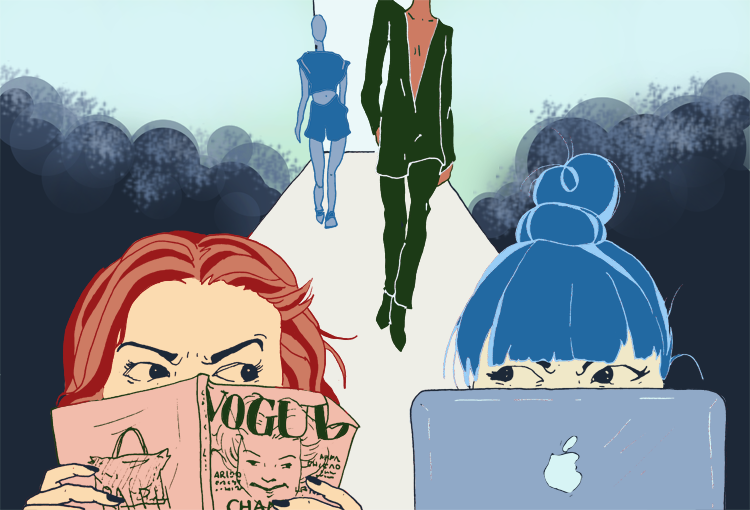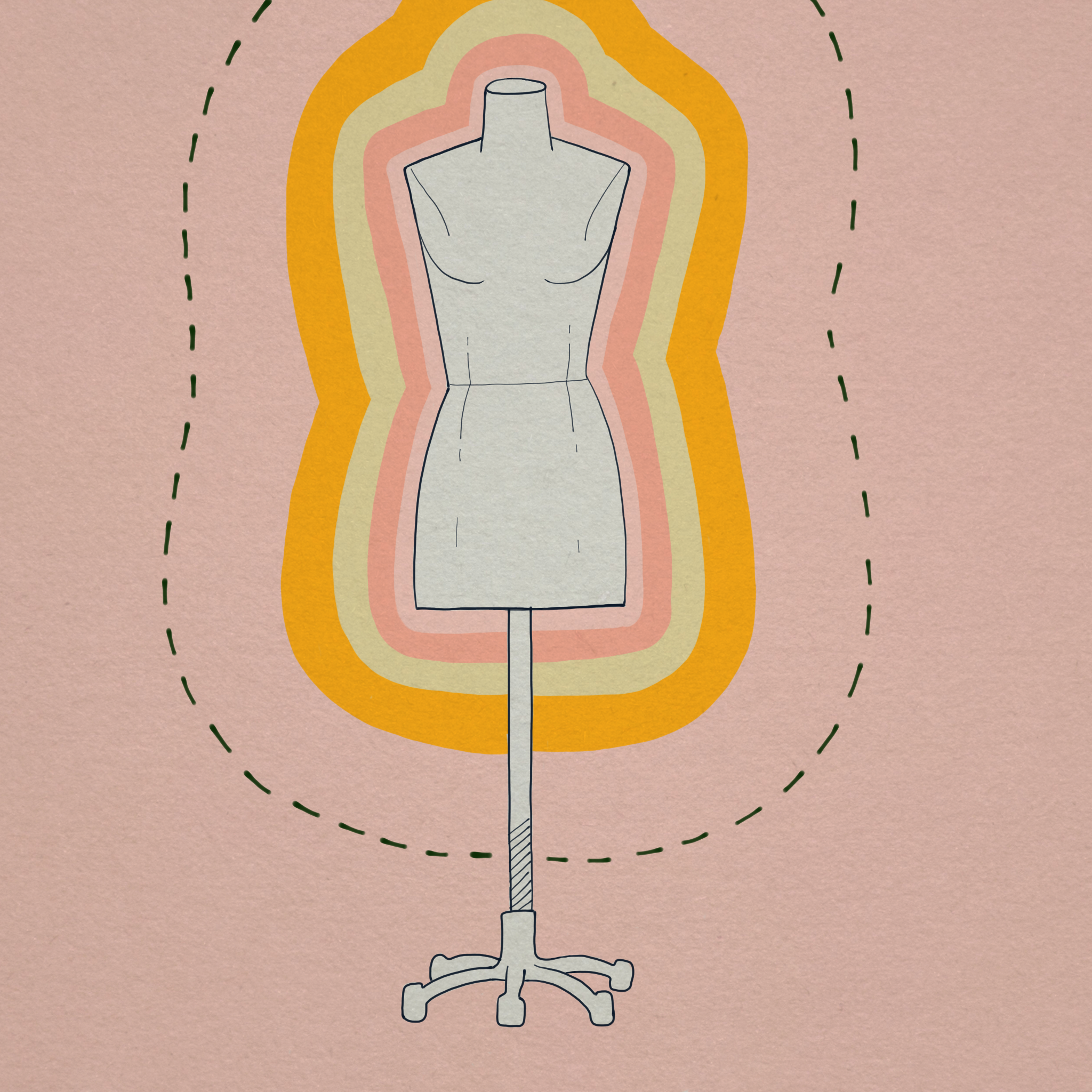Clique Work v. Click Work: Response to Vogue Editors
Fashion month is officially over, guys, and as the fashion world reflects back on the most recent slew of collections, celebrity sightings and models of the moment, the show remaining at the fore of everyone’s mind may not be an actual fashion show so much as the showdown that took place between Vogue editors and fashion bloggers. The firestorm erupted with the editors’ vitriol against bloggers in Vogue.com’s recap of Milan Fashion Week on September 25, and concluded, rather fittingly, with a last, conciliatory word from The New York Times ten days later. One point on which everyone agrees is that this dispute is old news – 2009 old, to be precise. The more interesting question is why the Vogue editors can’t seem to let go of their disdain for the bloggers whom Vogue magazine itself appears to embrace, whether measured by Vogue covers and columns or Vogue.com’s social media posts and the like.
The simple answer is that fashion is an archetypical form of what scholar Minh-Ha Pham calls “taste work,” and the production of taste is inherently a battle between the haves and the have-nots, insiders and outsiders, fashion’s Old Guard – what veteran editor Suzy Menkes calls “us fashion folk” – and fashion’s media-savvy upstarts. “[T]he fields of taste production and consumption are constituted in and by racial, gender and class relations of power in which the meanings of taste – and connected to them, the meanings of style, fashion, and beauty – and the right to determine these meanings are struggled over,” Pham writes in her recent book on superstar bloggers such as Susie Bubble and Bryanboy. [1] Vogue incorporates bloggers into their ranks in order to stay relevant, but the ranks are strictly ordered. Three years ago, Menkes – then at the Times’ T Magazine – had skewered the blog scene by grumbling, “If fashion is for everyone, is it fashion?” Are we surprised, then, when Vogue.com’s Chief Critic Sarah Mower contrasts the bevy of “pathetic” bloggers to “the non-photographed…pros” making the “real” fashion news? For all of us who thought that the digital economy had democratized fashion’s sensibilities, think again.
You might retort that the Vogue editors are expressing one among so many views in today’s fashion scene, bloggers’ included, that the editors’ griping no longer carries much authority. Social media certainly enables direct conversations to take place between editors, bloggers and the general public: witness the immediate Tweets and Instagram posts issued by Susie Bubble, Bryanboy and other prominent bloggers, for instance. And yet, following Pham, I would look carefully at the unequal “racial, gender and class relations of power” embedded in the exchanges, for Pham identifies the hierarchies within the fashion blogosphere privileging the “white, female, straight, and normatively gender-representing” cohort that describes most Vogue editors and accords them their cultural legitimacy. [2] In other words, it is no coincidence that Susie Bubble and Bryanboy – both Asian, one queer – have born, as Pham argues, “the brunt of the moral and ethical criticism against bloggers”. [3] The more bloggers resemble the Vogue editorial clique, the less flack said bloggers have to manage. So where does that leave the debate?
It’s clear that structural inequalities are central to fashion’s self-definition. Asianness and queerness notwithstanding, Susie Bubble and Bryanboy stand at the center of every reiteration of the editor v. blogger firestorm precisely because they signify both the potential and the limits of fashion’s democratizing impulse.
Notes
[1] Minh-Ha Pham, Asians Wear Clothes on the Internet: Race, Gender, and the Work of Personal Style Blogging (Durham: Duke University Press, 2015), 59.
[2] Pham, 191.
[3] “White bloggers’ racial and class privilege buffers them from such charges,” Pham continues (ibid). Moral and ethical criticisms include accusations of undisclosed brand promoting and devaluations of bloggers’ work as preening and play.



